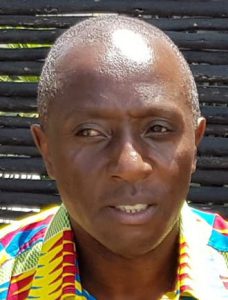
NEW FORT COX COLLEGE COUNCIL TO REPURPOSE INSTITUTION
THE Fort Cox College of Agriculture and Forestry has formally appointed and inducted its council set to serve a term of three years. In terms of section 9.1 of Act 16 0f 2006, every Public College must establish a Council.
The College Council’s role is to establish and monitor systems and processes to set strategic direction, establish the purpose, values, goals and objectives of the college as well as to identify and manage performance expectations and monitor achievements. To adhere to the COVID-19 combating measures like maintaining the stipulated social distance of two metres and avoiding crowded areas, the induction program of the Fort Cox College took place through a virtual teleconference platform ‘Teams Meeting’.
The nomination and induction process was organized by the Eastern Cape Department of Rural Development and Agrarian Reform (DRDAR) with the services of an external facilitator to ensure fairness and eliminate any shadow of impartiality. With the institution of learning being among those at the centre of agriculture in the province, MEC for Rural Development and Agrarian Reform, Nomakhosazana Meth highlighted the crucial role of the council and the institution in inculcating the culture of commercial farming especially in rural areas. Meth said the council has to hit the ground running.
“Entrepreneurship, enterprise development, food security, integrated and improved agriculture are what you should strive for if we are to drive rural development in the province. There is no time to waste. Let’s work together to rebrand the sector and repurpose the college and move away from
She added: “The school of agricultural training and education has always been poorly controlled, both in terms of curriculum content and qualification of educators while the informal training was, to a large extent, untested in terms of quality. Historically, white institutions, as I speak and are still relatively better resourced in terms of infrastructure that supports training, education and human resources while historically black institutions are poorly resourced”.
Meth said her department was busy facilitating partnerships between young farmers and commercial agro-business enterprises where the commercial business is requested to mentor, train and provide off-take agreements to enable the mentees to penetrate new markets. In this financial year this programme is targeting a total of 150 young farmers.
“The department is also dedicating specific programmes to build a capacity of 50 unemployed agricultural graduates to be trained as agricultural training assessors, facilitators, auctioneers, livestock agents, insurance brokers, etc.
This initiative is meant to broaden the opportunities of young agricultural graduates beyond the traditional activities that are associated with the sector,” said Meth. In her parting shot, Meth said there is a widely held sentiment among farmers and agribusiness leaders that South African agricultural colleges can no longer be trusted to produce appropriately trained and technically skilled professionals.
The newly inducted chairperson of the Council, Dr Pumezo Lupuwana assured the stakeholders that change was imminent. Dr Lupuwana conceded that he and his team had a big task ahead in turning things around at the college and went on to attribute the decline in the quality and quantity of graduates from the school to administrative challenges.
“The MEC (Meth) has made it clear what she expects from us. And ours will be to oversee the implementation of the department’s strategy and to a certain extent enforce it if needs be,” he said. Dr Lupuwana holds a PhD in Philosophy of Ethno Botany from the University of Fort Hare. He has extensive work experience of 40 years in both the private and public sector with 16 years in the public sector where he served as a regional director at the Department of Roads and Public Works.
In the private sector he once worked as an academic programme head support at Khanya College which was an affiliate of the Southern African Committee for Higher Education. Dr Lupuwana said while with the Department of Public Works he also worked with rural communities through the Extended Public Works Project where he assisted rural residents to establish rural economy using the little natural resources they had in their disposal like water and land –an experience which he said would come in handy in spreading the culture of establishing rural economy among young graduate farmers from rural areas.
Dr Lupuwana is not new in the position he has been installed in. Prior to joining the college, he was the chairperson of the council at the University of Fort Hare for two terms and later served as chairperson for the Fort Cox College’s interim council from 2018 to 2019.
Dr Lupuwana’s deputy is seasoned leader Ambassador Mandisa Marasha who has successfully led in various fields in and outside the country. Ambassador Mandisa Marasha holds a degree in nursing from the University of South Africa and boasts years of experience in leadership roles starting from the dawn of democracy in the country where she served as MEC for the Eastern Cape Department of Transport in 1994 before her stint with the Department of Public Administration.
She has also served as the Speaker of the Eastern Cape Legislature ahead of her giant leap to be the ambassador of South Africa in countries like Greece, Cyprus, Serbia, Sweden, Latvia and Bosnia where she resigned in 2015. She said her experience in the provincial government would add value in steering the institution to the desired trajectory.
“My involvement in government was communitybased and everything was about communities. And if one looks at what the Department of Rural Development and Agrarian Reform looks to do with the college, it talks directly to my expertise where rural development is at the core of rural economy development and sustainability,” she said. She also expressed her delight in how the department and the elective process recognized gender equality in forming up the council.

